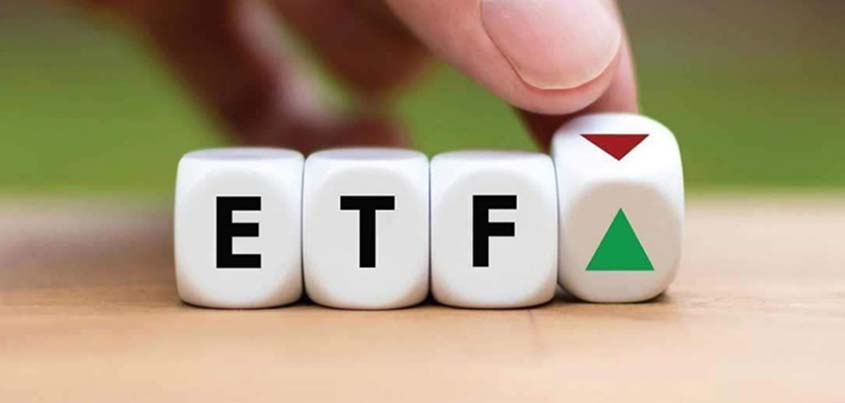Explore Exchange Traded Funds (ETFs) available with InCred Premier
Exchange-Traded Funds (ETFs) are investment funds that are traded on stock exchanges like regular stocks. They provide investors with an opportunity to diversify their portfolios by investing in a basket of securities across various asset classes. They also provide flexibility as they can be bought or sold throughout the trading day. ETFs are suitable for both retail and institutional investors who are looking for cost-effective, diversified investment options.


What are Exchange Traded Funds (ETFs)?
Exchange-Traded Funds (ETFs) are investment funds that are traded on stock exchanges, just like individual stocks. They are designed to track the performance of a specific index, commodity, sector, or asset class. ETFs are open-ended investment funds, meaning the number of shares can fluctuate based on demand. They are passively managed and aim to replicate the performance of the underlying index or asset class.
Benefits of ETFs
-

Diversification
ETFs provide investors with instant diversification by holding a basket of securities, reducing the risk associated with investing in individual securities.
-

Flexibility
ETFs can be bought or sold throughout the trading day at market prices, providing investors with liquidity and flexibility.
-

Cost-effective
ETFs generally have lower expense ratios compared to actively managed funds, making them more cost-effective for investors.
Begin your investment journey with InCred Premier today!

Risks associated with
Exchange Traded Funds (ETFs) available with InCred Premier
-
-
Market Risk
As ETFs track the performance of an underlying index or asset class, they are exposed to market fluctuations and can experience losses.
-
Tracking Error
ETFs aim to replicate the performance of the underlying index or asset class, but there can be a slight deviation known as tracking error due to factors like fees and expenses.
-
Liquidity Risk
Some ETFs may have lower trading volumes, leading to wider bid-ask spreads and potential difficulty in buying or selling shares.
-
Counterparty Risk
ETFs may enter into derivative contracts with counterparties, and there is a risk that the counterparty may default on their obligations.
-
Frequently Asked Questions
*Each user of this information should make such investigation as it deems necessary to arrive at an independent evaluation of an investment in the securities of companies referred here (including the merits and risks involved) and should consult his own advisors to determine the merits and risks of such investment. Past performance is not necessarily a guide to future performance.
Insights about the market.
-


Thu, 3 Jul 2025

6 mins
Why Do You Need a Mutual Fund Advisor or consultant?
Read More
-


Thu, 19 Jun 2025

4 mins
Know Your Rights as a Mutual Fund Investor in India
Read More
-


Thu, 19 Jun 2025

3 mins
Things to Know About Exit Load Before Redeeming Mutual Funds
Read More
-


Thu, 19 Jun 2025

3 mins
SIFs Explained: Bridging the Gap Between Mutual Funds and PMS
Read More
-


Thu, 19 Jun 2025

5 mins
Advantages and Disadvantages of Mutual Funds: A Comprehensive Guide for Indian Investors
Read More
-


Thu, 19 Jun 2025

3 mins
Why you should continue your SIPs even during market corrections?
Read More
-


Tue, 27 May 2025

4 mins
ELSS, NPS, and PPF Under the New Tax Regime: Are They Still Worth It?
Read More
Hear What Our
Clients Have To Say
Start your investment journey with InCred Premier today!








